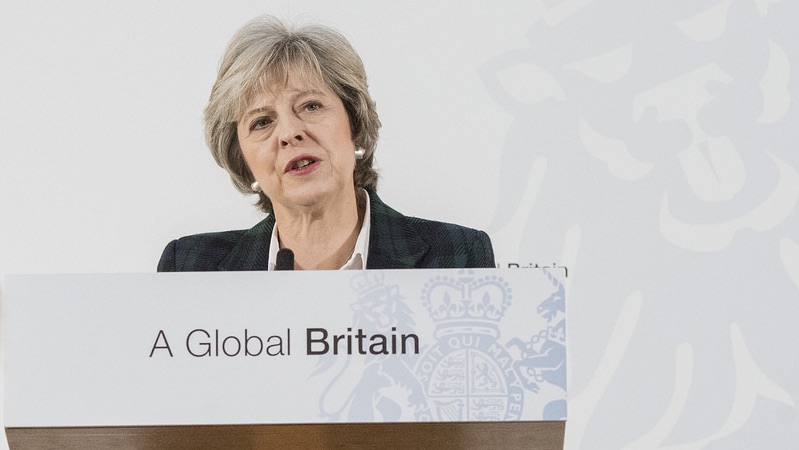The UK is to enshrine a 2050 net zero emissions target in law, with an amendment to the Climate Change Act introduced on Wednesday.
It will make Britain the first major economy to legislate an end date for its contribution to global warming, following advice from the independent Committee on Climate Change (CCC).
In one of her last acts as prime minister, Theresa May is to launch a youth steering group on the issue, meeting science and engineering students.
“Now is the time to go further and faster to safeguard the environment for our children. This country led the world in innovation during the industrial revolution, and now we must lead the world to a cleaner, greener form of growth,” she said in an advance statement.
“Standing by is not an option. Reaching net zero by 2050 is an ambitious target, but it is crucial that we achieve it to ensure we protect our planet for future generations.”
Britain, home of the industrial revolution, ‘to end contribution to global warming’
The move has cross-party support and is expected to win parliamentary approval. It follows a declaration of “climate emergency” in May and bills from Labour and Conservative backbenchers urging the government to put the target into action.
The UK has pitched to host the pivotal 2020 UN climate talks, at which countries are due to revise their pledges to the Paris Agreement.
CCC chair John Gummer said the net zero target was “necessary, feasible and cost effective”.
“This is just the first step. The target must now be reinforced by credible UK policies, across government, inspiring a strong response from business, industry and society as a whole,” he said.
The CCC has recommended the government bring forward a ban on new petrol and diesel cars from 2040 to 2030. It also wants to accelerate tree-planting and the roll out of low carbon heating. Carbon dioxide from heavy industry must be captured and pumped underground, in its roadmap, despite the commercial application of this technology remaining unproven.
Under the Climate Change Act, the CCC is responsible for setting 4-year “carbon budgets” and monitoring progress towards the long-term goal.
Trades Union Congress general secretary Frances O’Grady called for workers in intensive industries to be given options to shift to new jobs.
“We now need a fair and robust plan to get there that everyone can get behind,” she said.
We need your help… Climate Home News is an independent news outlet dedicated to the most important global stories. If you can spare even a few dollars each month, it would make a huge difference to us. Our Patreon account is a safe and easy way to support our work.
On Tuesday, the Welsh government announced its intention to accept the CCC’s recommendations and aim to go further. The CCC had proposed that Scotland, with an abundance of old oil wells to store CO2, could reach net zero in 2045 and Wales, which has a tougher task to clean up farming, could cut emissions 95% by 2050.
In a statement, Welsh environment minister Lesley Griffiths promised to bring in regulations with the goal of reaching net zero in 2050.
“It is vitally important the UK Government ensures the costs and benefits of moving to net-zero are spread fairly across the UK, including support for vulnerable workers and consumers,” she said.
France is also working on legislation to set a net zero emissions target for 2050. On Tuesday, its parliament passed a transport law banning the sale of fossil fueled cars by 2040 and promoting clean alternatives.
Transport minister Elisabeth Borne said: “France is ready to face the challenge of the climate emergency, and our majority is showing its determination to ambitiously and credibly put our transport on the path of clean mobility.”
Meanwhile Japan’s cabinet agreed a long-term climate strategy aiming for net zero in the second half of the century, which ducked calls to phase out coal power.
